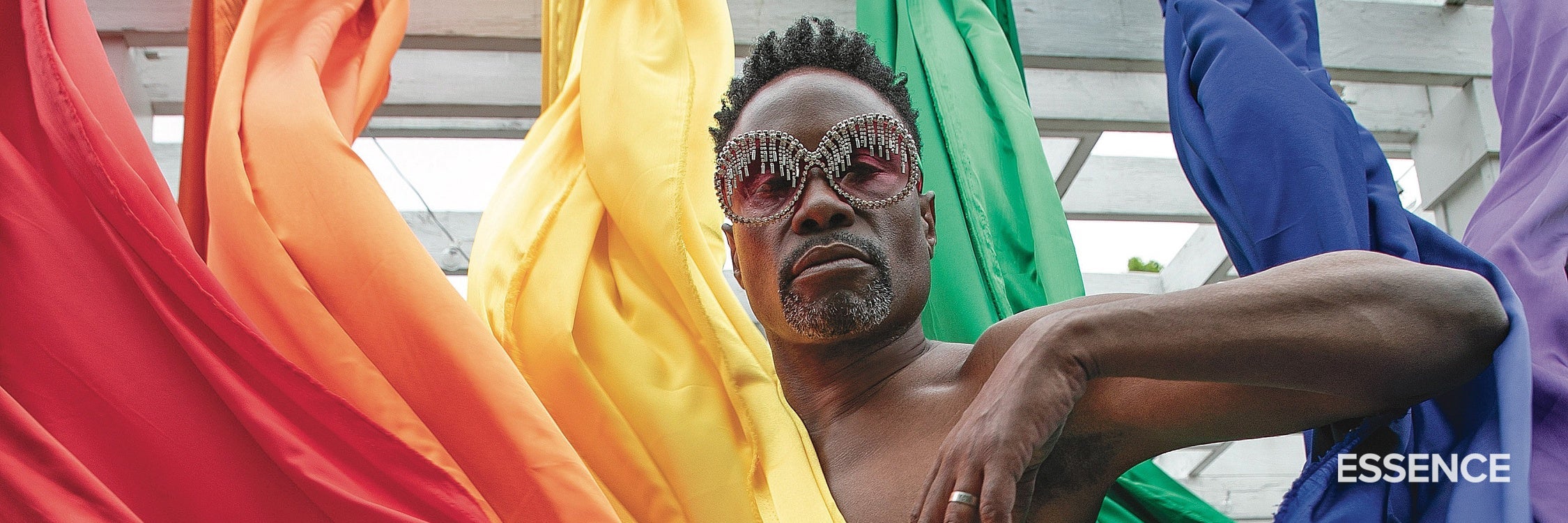The 50-year-old multihyphenate who became a household name for playing Pray Tell in FX’s drama Pose is exhausted by our community’s ongoing fight against police brutality and institutionalized White supremacy. It’s pretty much all we can talk about on a recent morning via Zoom.
Outside, Black Lives Matter demonstrations in response to the killings of George Floyd, Breonna Taylor and Ahmaud Arbery, among others, have spread throughout the nation. “What we’re seeing is a tipping point,” Porter says, referencing Malcolm Gladwell’s book of the same name.
“But not just a tipping point over what has happened recently. It’s a tipping point 300 years in the making. WE ARE OPPRESSED WITH MALICE AFORETHOUGHT, which is what it’s always been in this country, and we’re tired of it.”
As he takes off his glittery gold oversize glasses, his eyes dart away from the computer screen. I can feel his fatigue, and the anger he’s trying to contain as he searches for the right words. When he turns back to me, his forehead is damp, evidenced by its shine.
Frustrated, he wipes his brow. “We’re like a dysfunctional family who keeps secrets and doesn’t want to talk about it,” he continues, describing American society’s aversion to discussing the enduring impact of slavery. “They don’t want to talk about the actual thing. They want to act like the actual thing never happened, so that there’s never a healing that can take place. White people are so afraid that we want vengeance that they can’t acknowledge the truth.
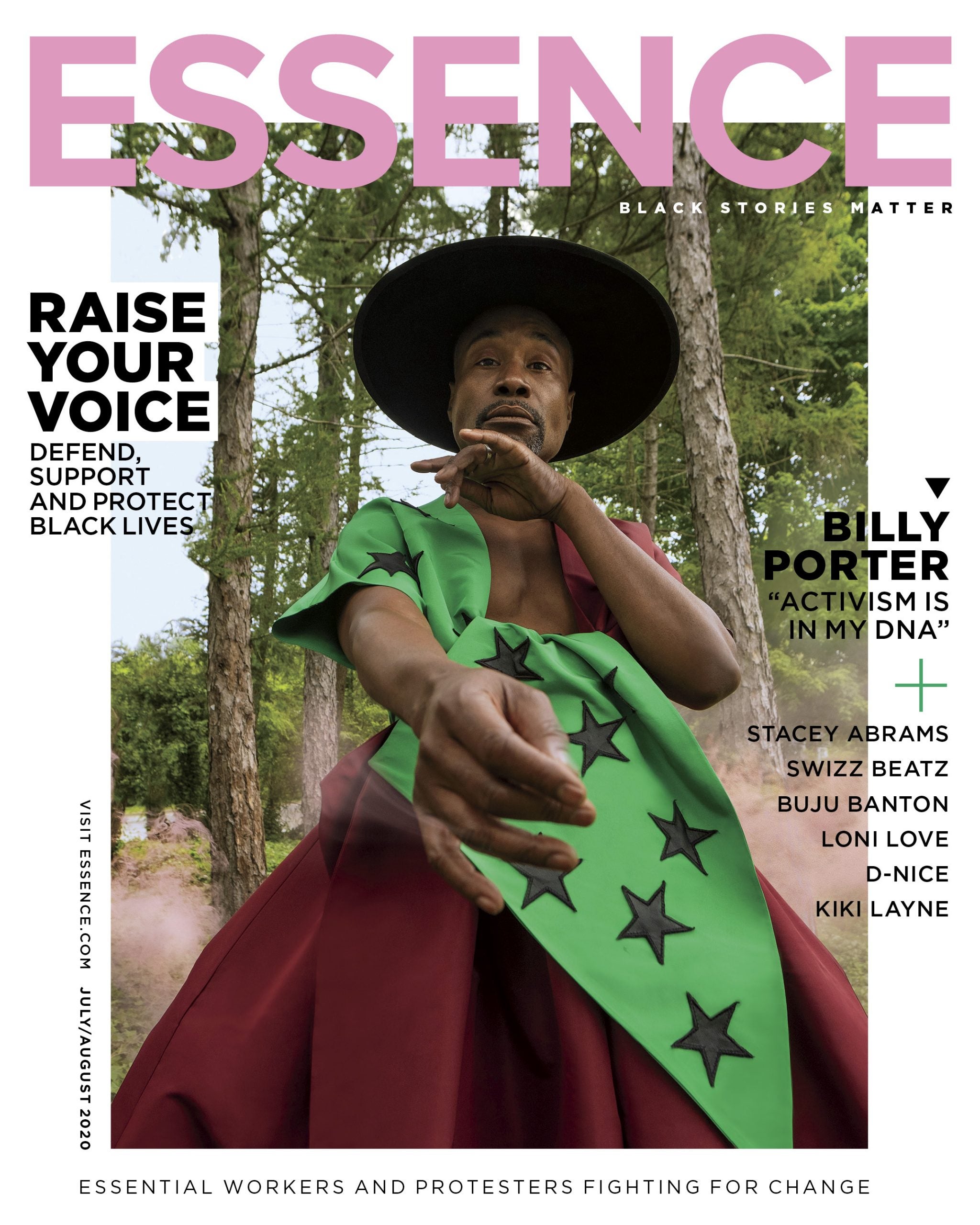
“But we don’t want vengeance,” he adds. “We want our rights. We want equality. We want to be treated like human beings. We want to know that we can walk out of our houses and not be under threat of death every single day simply because of the color of our skin.” The only way we get to such a promised land, Porter says, is by having necessary conversations that bring about a reckoning. Ironically, “conversation starter” is exactly how I would describe the entertainer.
For the unaware, Porter is a national treasure, though the world is just coming to realize it. A native of Pittsburgh, he was raised by his mother, who is disabled, and his stepfather. After coming out at 16, he was bullied for just existing. “My masculinity was in question from the moment I could comprehend thought,” he tells me. “I was never masculine enough by society’s standards to walk the earth.”
Finding solace in music and theater, he landed a drama scholarship to Carnegie Mellon, and upon graduation he moved to New York City, with his sights set on Broadway. After serving as an understudy for 1992’s Five Guys Named Moe, he got his first big break as a Teen Angel in the 1994 Broadway revival of Grease.
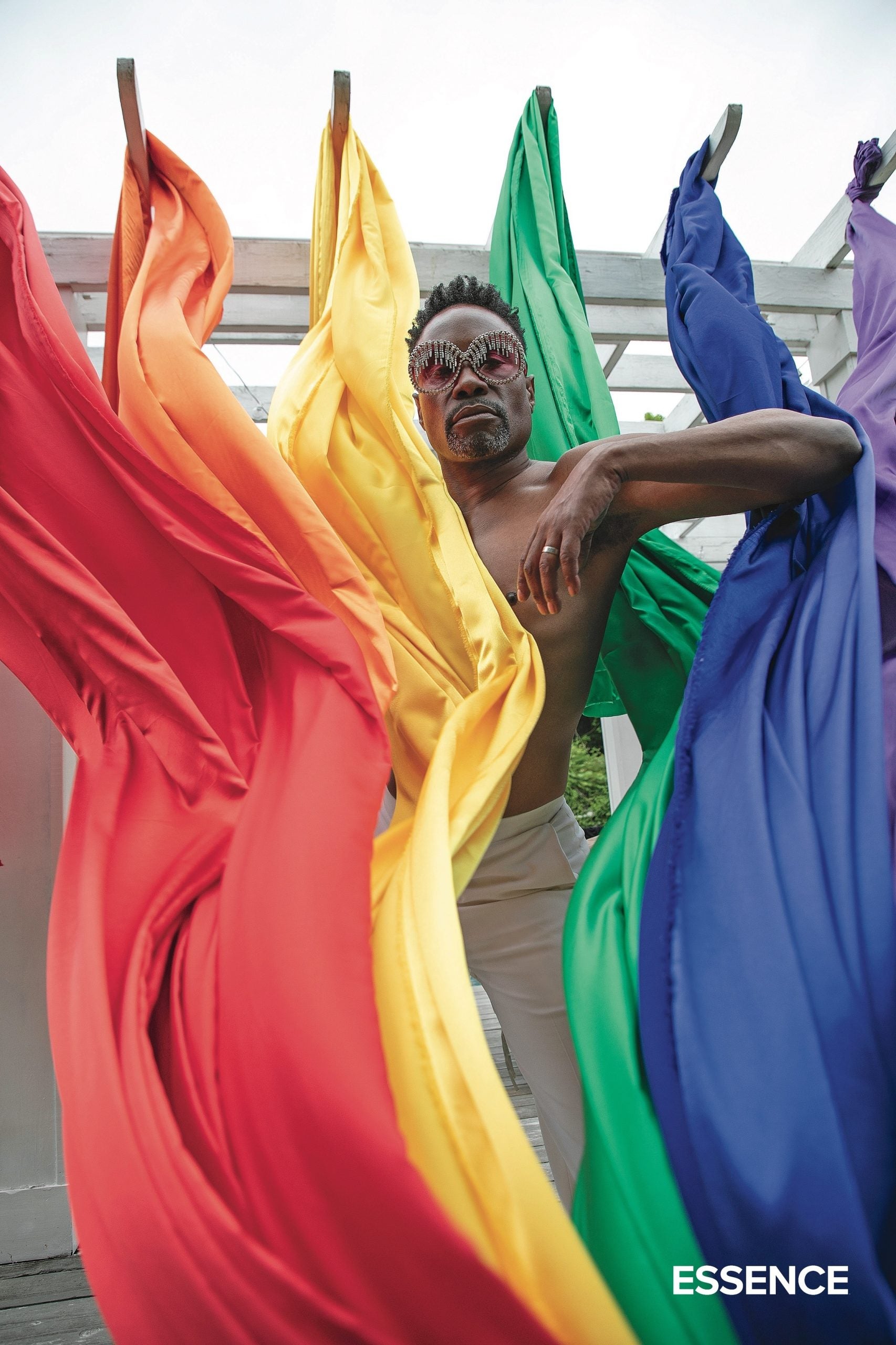
In this role, his powerhouse vocals—a familiar sound to anyone who’s spent some time in a Baptist, AME or Pentecostal pew—put him on the map. Three years later he released his debut R&B album, Untitled, to minor fanfare, as his identity was said to be a guaranteed deterrent to success.
“In my first record deal on A&M Records, I spent a lot of time inside of the hamster wheel of ‘Is he masculine enough?’ and ‘Will anybody believe him?’” he recalls quite matter-of-factly. “It was all about, ‘You’re a f–got. Go away.’ ” Such blatant homophobia is what ignited perhaps the first major conversation he started. This one, however, was with himself, as he was forced to decide between deception and possible fame, and his sanity.
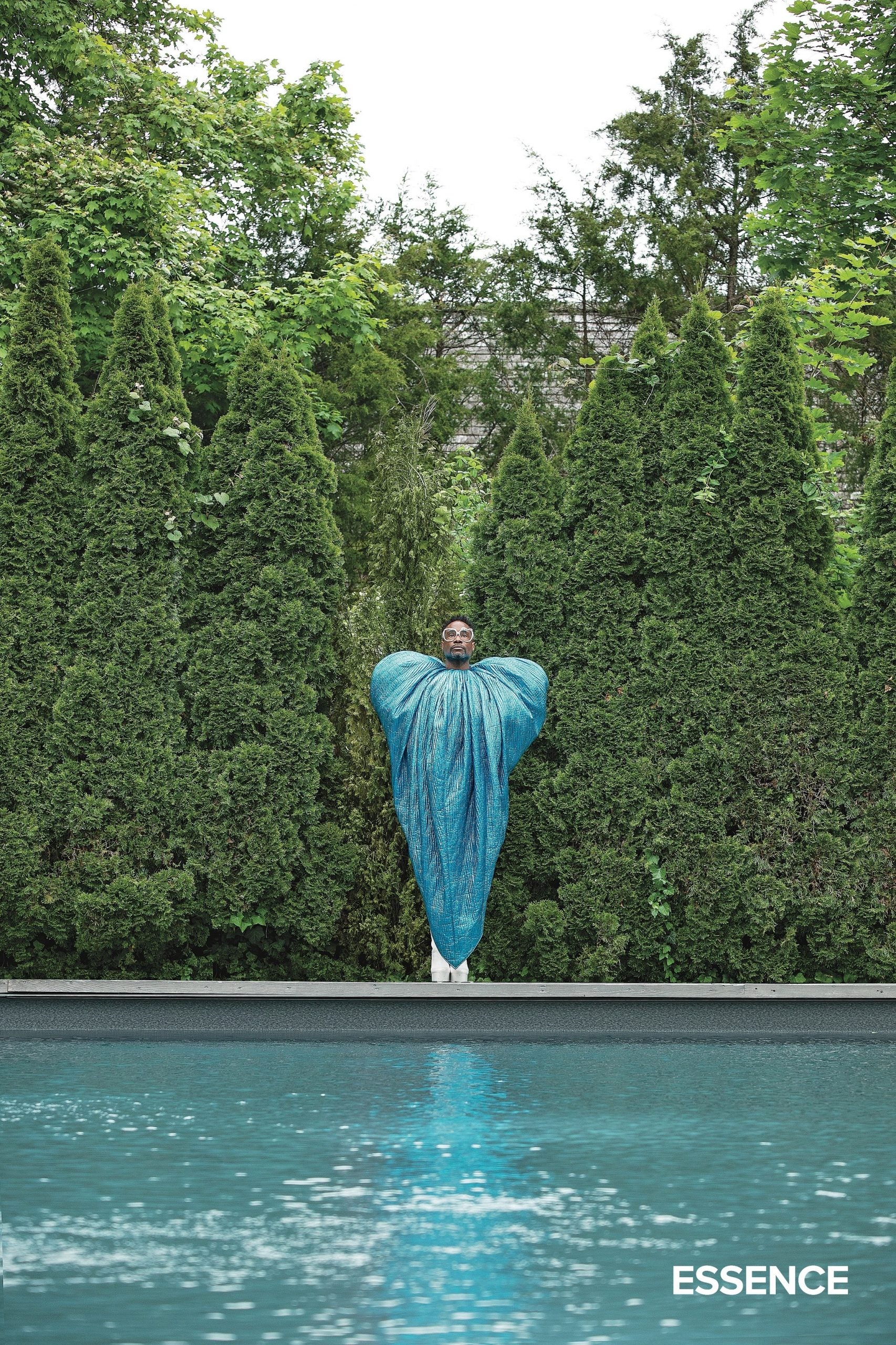
“I chose myself over whatever might be,” he says, noting that choosing to “lean into” his truth led to a number of years of unemployment, and being on the brink of obscurity and bankruptcy. “But by taking myself out of the masculinity game, that literally turned my life around, and all of those layers were building blocks to the authentic human being you see in front of you who gives zero f–ks.
“When I actually leaned into my truth,” he adds, “this is what ultimately happened. Did it take two-plus decades? Yes, but it’s happening and this is my ministry.”
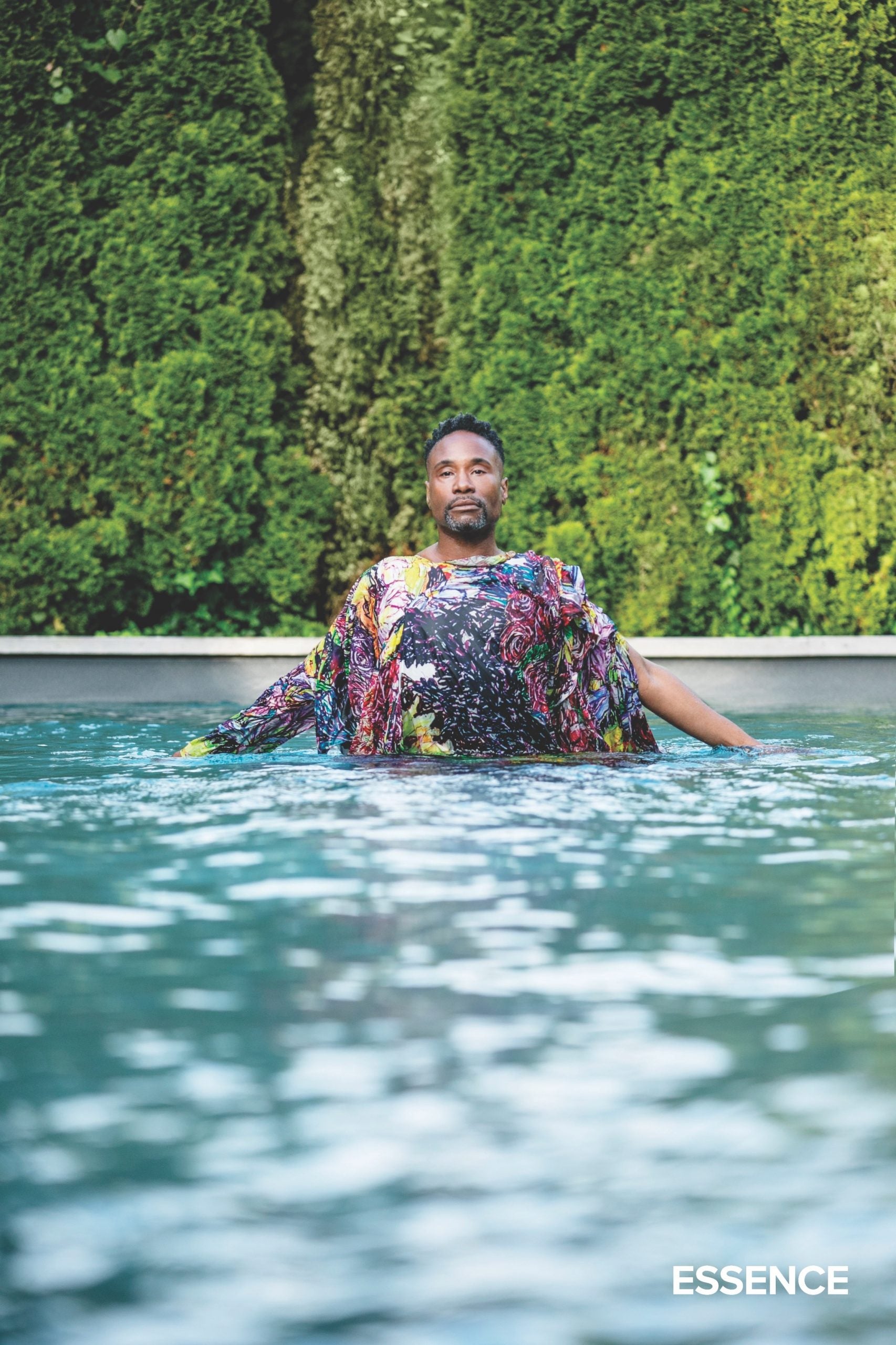
The immense success he’s enjoying is due, in large part, to his role as the sharp-tongued emcee in Ryan Murphy’s Pose, the TV drama based on the 1980s New York City underground ballroom scene, from which Black and Latinx LGBTQ+ people gifted the world with the voguing dance style that has inspired celebrities from Madonna to Rihanna.
2020 ESSENCE Black Women in Hollywood honoree Janet Mock writes, directs and produces the show, which also stars fellow Black Women in Hollywood honorees Mj Rodriguez, Indya Moore, Dominique Jackson, Hailie Sahar and Angelica Ross.
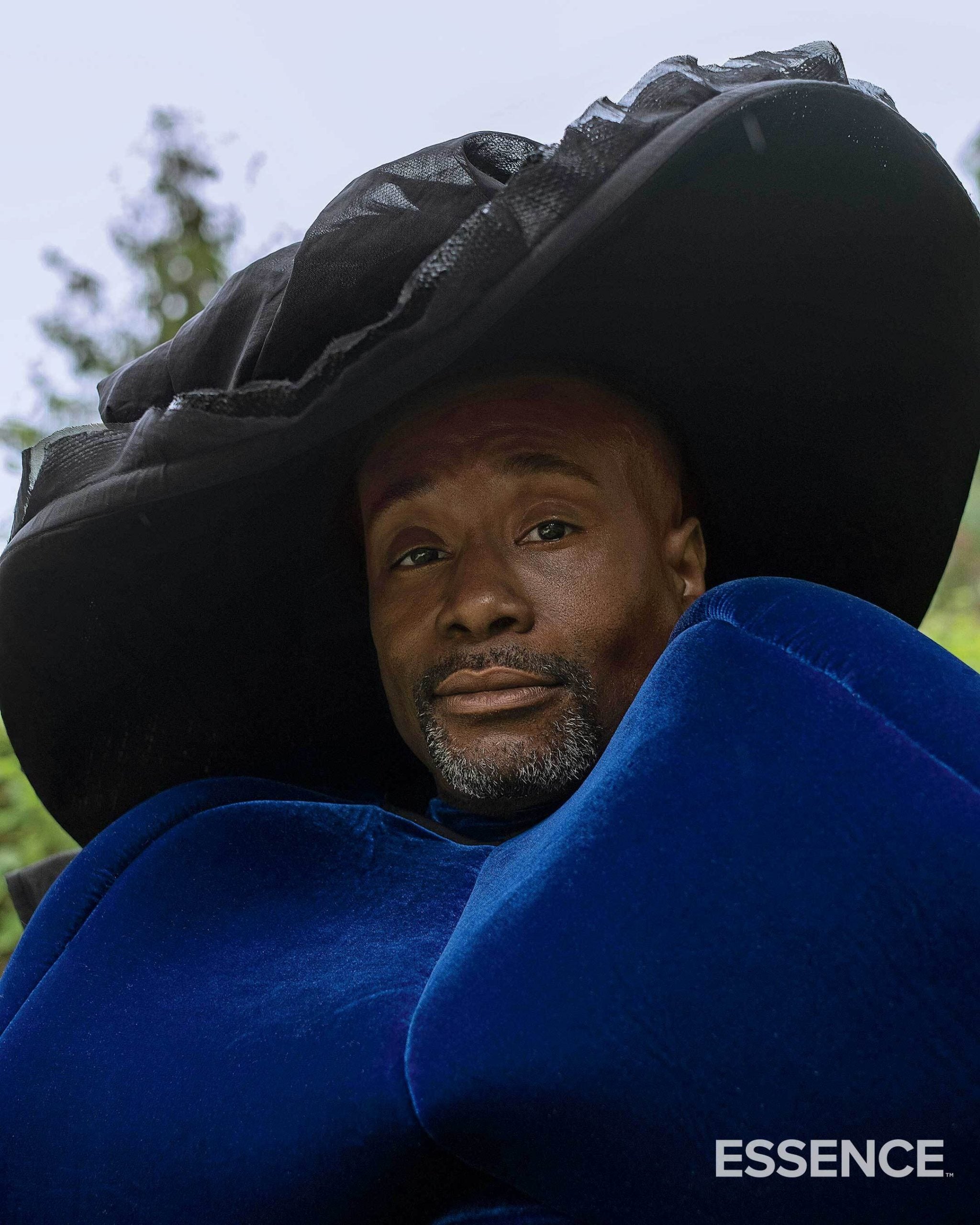
Porter says his role was one of the first that allowed him to bring his full self as a community elder who came of age at the height of the AIDS crisis. The role also catapulted Porter to stardom in his late forties.
And with this newfound fame, which he impresses on me only came because he chose authenticity over notoriety those many years ago, he’s making sure that his presence is felt whether he’s on the 2019 Oscars red carpet in a jaw-dropping, gender-bending Christian Siriano black velvet tuxedo gown, or in a couture Michael Kors black-and-white pinstripe suit, platform heels and an oversize Stephen Jones hat to rival any church mother’s at last year’s Emmys, where he became the first Black gay man to win Best Actor in a Drama Series.
Add that to his Grammy and Tony awards for his Broadway role in Kinky Boots and he’s just an Oscar away from EGOT status. During our call, Porter revisited the opening line of the speech he gave on Emmy night, in which he quotes Black gay writer James Baldwin.
“‘It took years of me vomiting up the filth that I was told about myself, and halfway believed, before I could walk around on this earth like I deserve to be here,’” he says. “But the filth was not only coming from White people. The filth was coming from my own.”
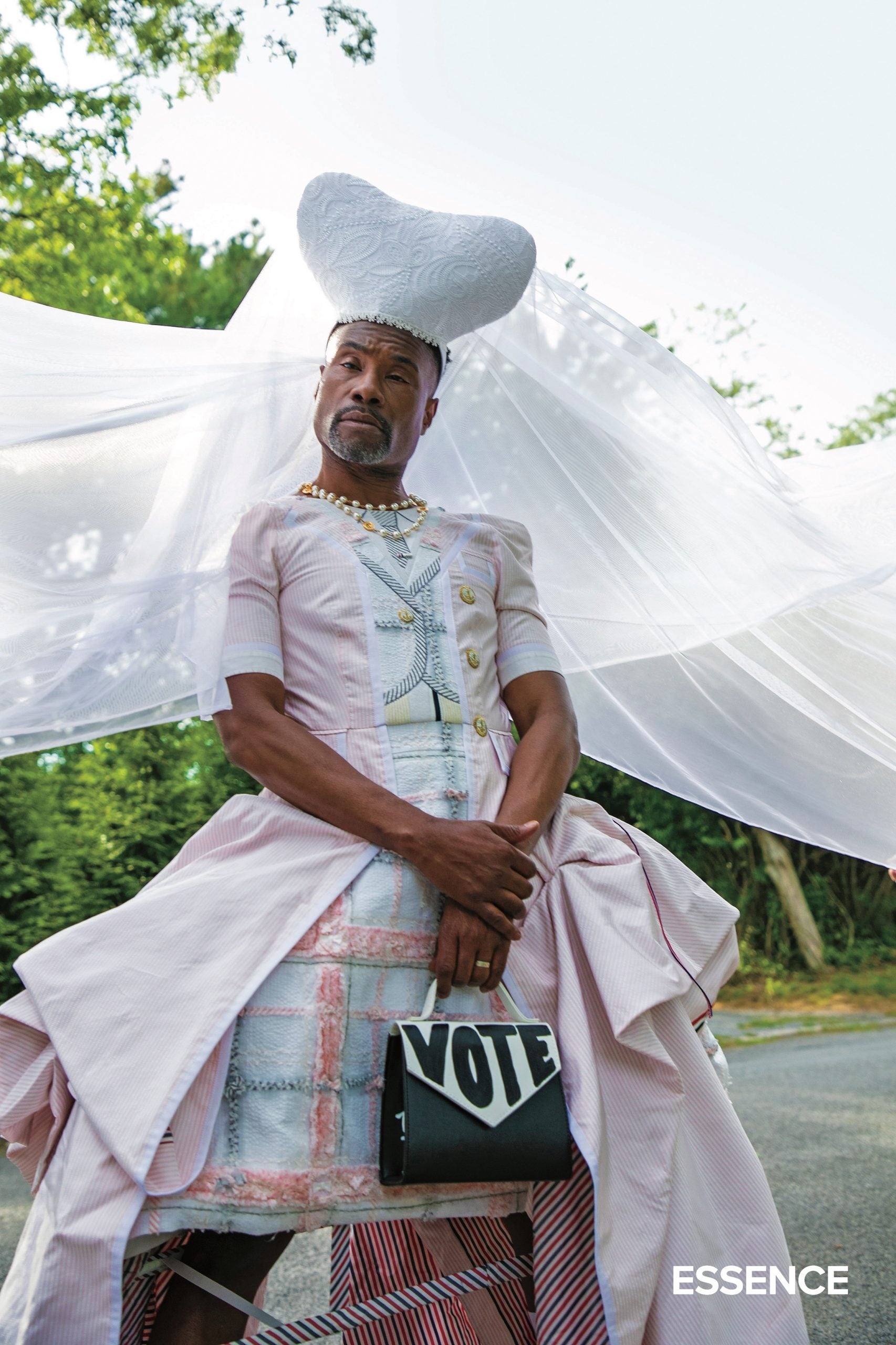
This statement brings us back to the social unrest unfolding in every state in America and another necessary conversation to be had, one about the emotional and physical violence Black LGBTQ+ people face from some cisgender and heterosexual members of the Black community.
Two days after George Floyd was killed, for example, a Black transmasculine person named Tony McDade was shot and killed by police in Tallahassee, Florida. His name and memory aren’t uplifted very often as protestors take to the streets. And when we look at the epidemic-level rates at which Black trans women are dying, we have to confront the fact that their killers are overwhelmingly Black men. These realities need to be factored in to how patriarchy, homophobia and transphobia within the Black community exacerbates the effects of racism and White supremacy we’re already battling.
“Stop killing us!” Porter screams in frustration. His hand trembles, as if searching for something to ground him. “Our trans women are out here dying at the hands of our own. We can’t ask for anything more than what we’re ready to give. It starts with us first, and I’m calling it out.”
A silence falls over the call. I can feel his rage through my laptop screen, and his plea that our community’s “Black Lives Matter” refrain be extended to all Black lives regardless of sexuality and gender. When he starts speaking again, he directly addresses conservative Black people.
“You all want to act like you’re concerned about our salvation,” he says, alluding to some beliefs that being LGBTQ+ isn’t “of God.” “But don’t worry about my salvation. Let me do that. If you think I’m going to hell, you keep that s–t to yourself. I don’t need tolerance. I don’t need acceptance. We demand respect for our humanity, too.”
“You want the police to stop being brutal,” he continues. “Okay. Yeah, I’m with you, but this f–got over here that you all love to f–k with, I’m Black first.” Porter acknowledges that these conversations are beginning to happen, as evidenced by support he’s received from people like Tyler Perry and Diddy and through this very ESSENCE cover.
“I’m very excited to engage in this conversation and have ESSENCE have my back because it’s those of us in positions of power in our community who can change the conversation,” he says. “I’m so moved by the olive branch that this is saying to the world and to our community collectively, that LGBTQ+ Black people are Black people first and we need to be supported and honored too. Stop killing us like everybody else is.”
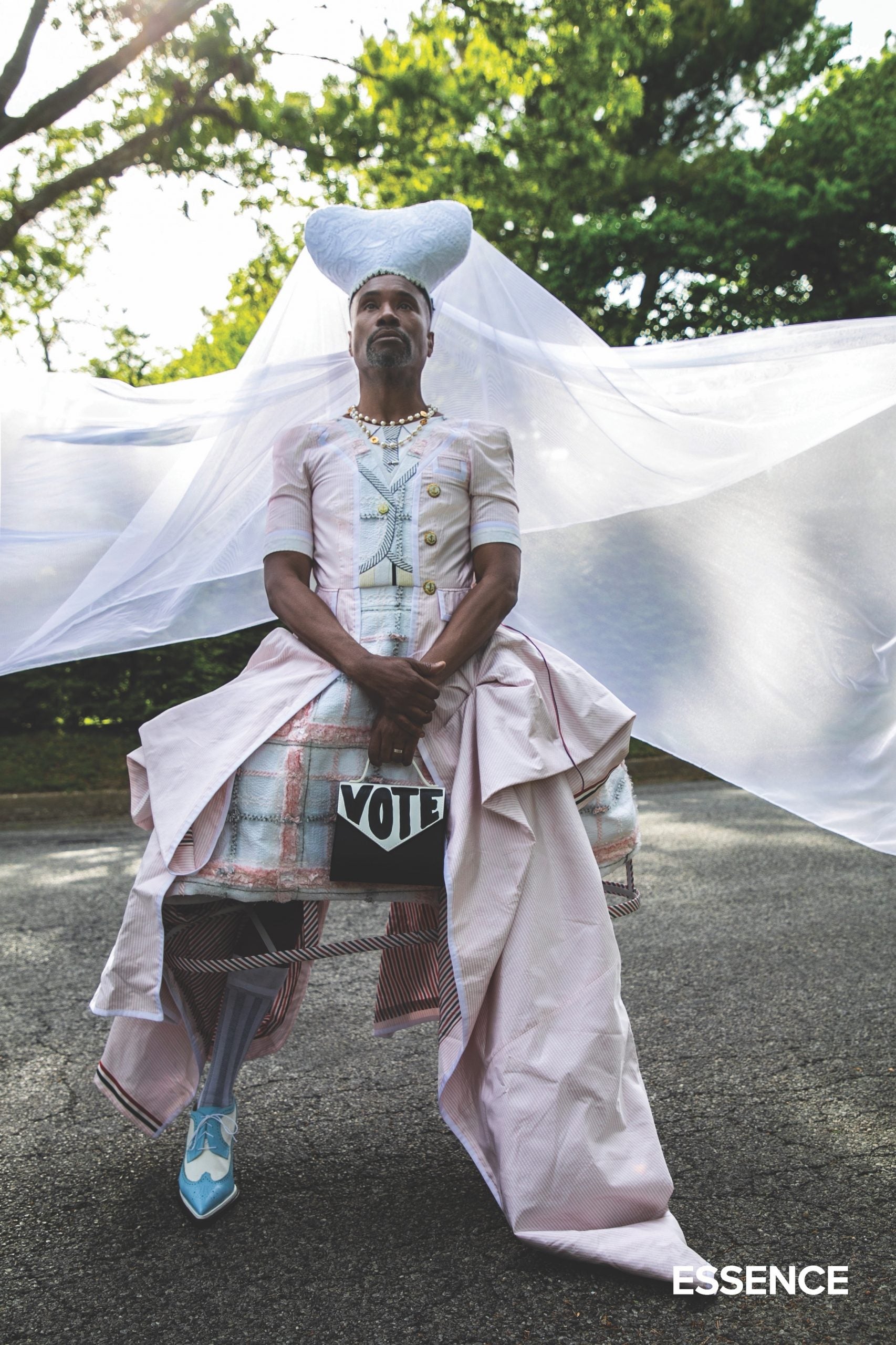
For the past year, Porter has been using his platform to encourage his fans and admirers to vote in the upcoming presidential election in November. That’s why he recently released a cover of Buffalo Springfield’s 1966 classic “For What It’s Worth,” a contribution of protest music to frame the moment.
“Being first-generation post-civil rights and feeding directly into, as a gay man, the AIDS crisis, activism is in my DNA,” he says. “And while I don’t fancy myself an organizer, you tell me where to show up, I’m going to show up. I’m that kind of activist.”
Porter sees using his voice as his ministry, one that “came from the church but is not tethered to the doctrine in a way that oppresses,” he says, but which gives him a way to inspire hope and change. Plainly put, he wants Donald Trump—or as he calls him, “Orangina 45”—out of office, and he believes the only way to ensure that is by all of us showing up at the ballot box.
“We must play the game that we’re in,” he says, preempting concerns some have about how ineffective politics can be in producing substantive change, and complaints about Joe Biden becoming the Democratic nominee over more progressive candidates. “We get in power, and then we change the law. That’s how you do it. That’s how it’s set up. With that understanding, get your little asses registered. Remember the fact that people died for us to have this right and go vote.”
Before our Zoom call ends, I ask about his upcoming projects, including a guest starring role in Jordan Peele’s The Twilight Zone reboot this summer. But chief among them is Porter playing the fairy godparent in Sony’s live-action remake of Cinderella—the role Whitney Houston flawlessly portrayed in Disney’s Brandy-fronted version.
When the film is released at the top of 2021, it will be perhaps the first time that the character is played by a man. Porter is unsure how that will be received by mass audiences, but one thing is sure, it will start a conversation. And Billy Porter, as always, is ready for it.
This interview originally appeared in the July/August 2020 issue of ESSENCE magazine, available on newsstands now.
CREDITS:
Chief Content & Creative Officer: Moana Luu @MoanaLuu
Deputy Editor: Allison McGevna @alliemcgev
Talent: Billy Porter @theebillyporter
Writer: Tre’Vell Anderson @rayzhon
Creative Director: Nia Lawrence @nialawrence_nyc
Entertainment Director: Cori Murray @corimurray
Photographer: JD Barnes @jdthecombo
Videographer: Jean London Dia @jeanlondondia
Fashion Stylist: Jason Rembert @jasonrembert
Groomer: Melissa DeZarate @melissa.dezarate
Barber: Jeremy Pelser @fadedaddynyc
Producer: Jordan Benston @jbthegawd
